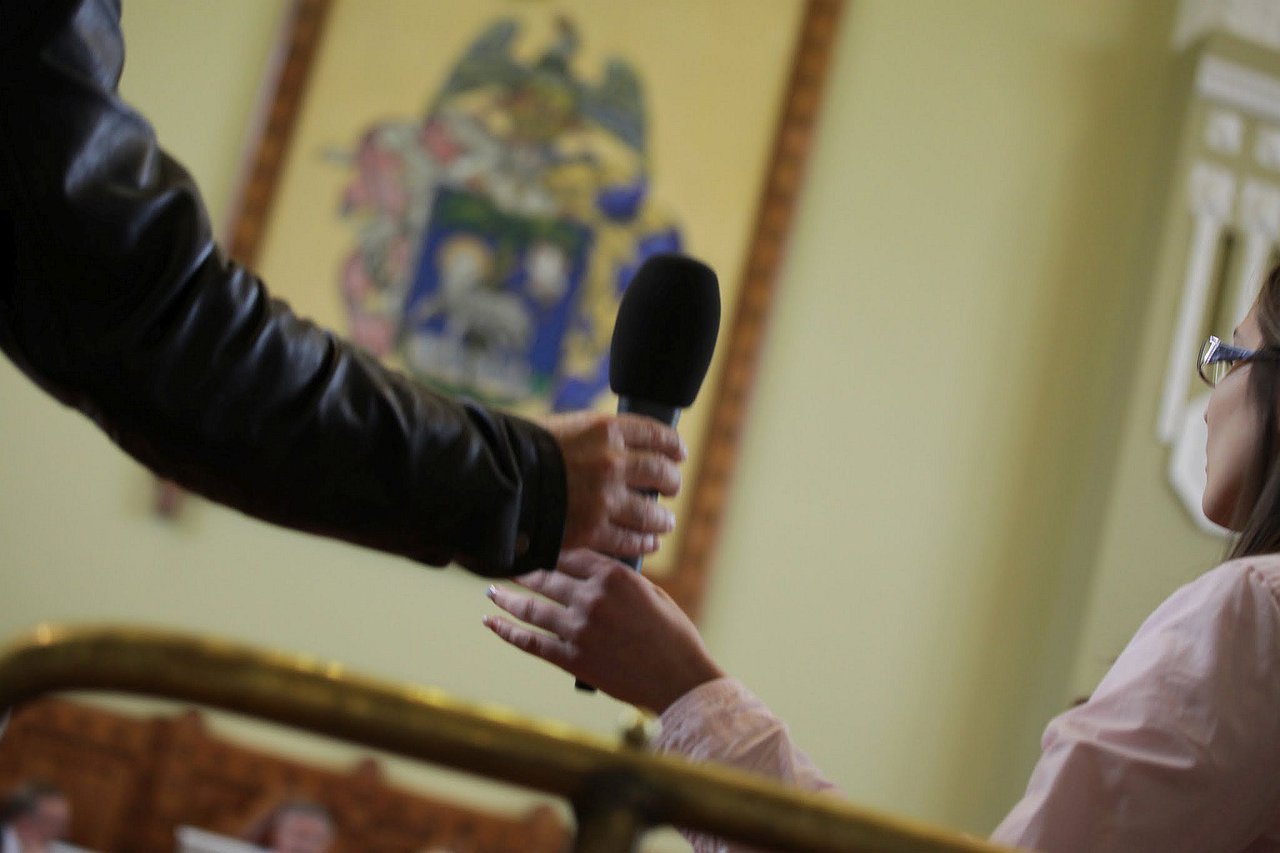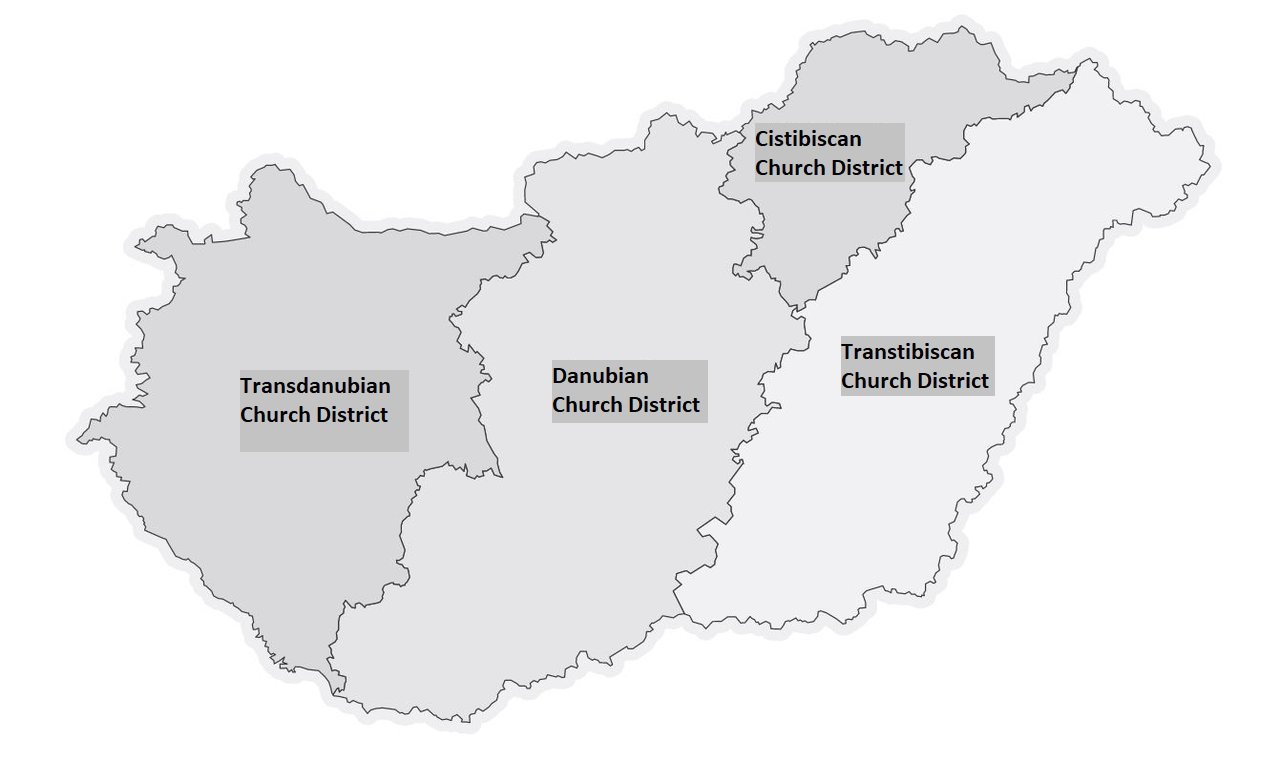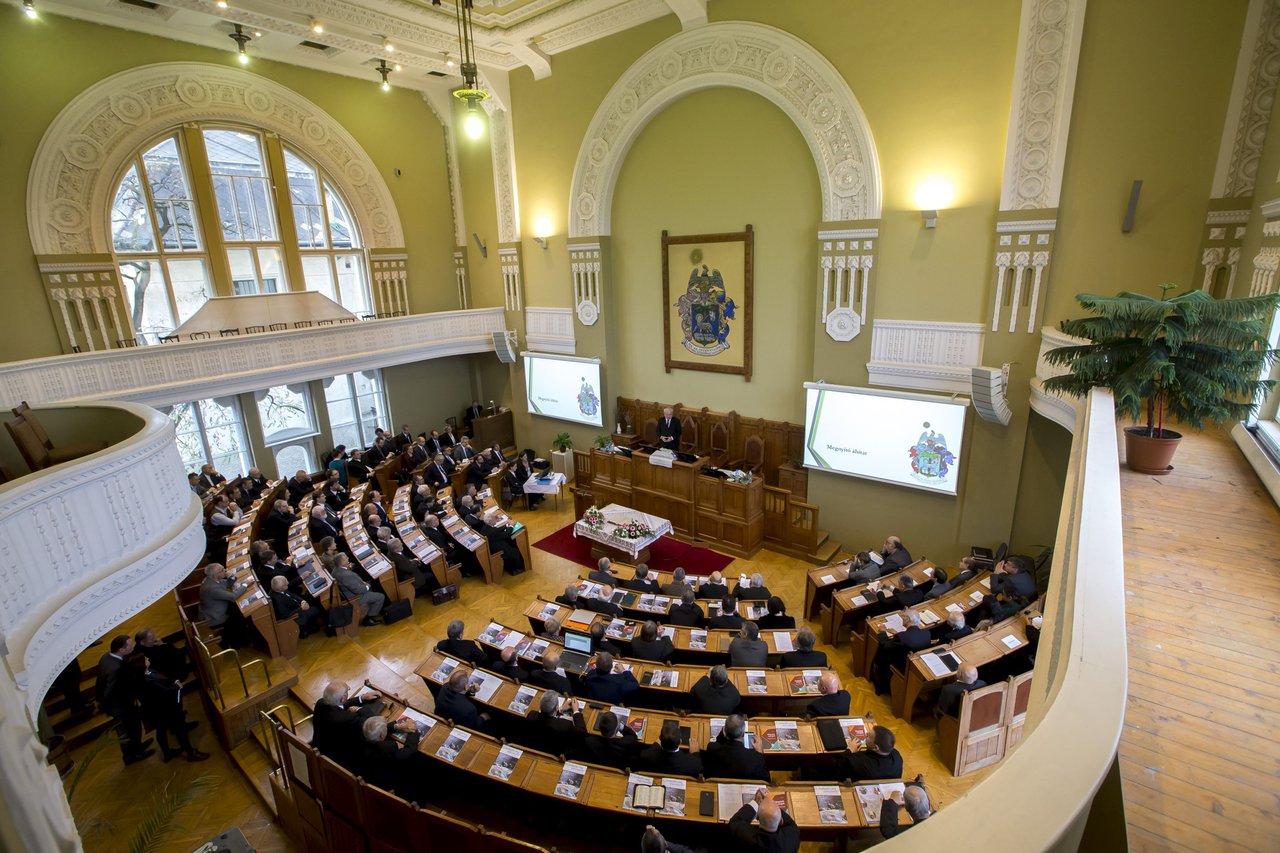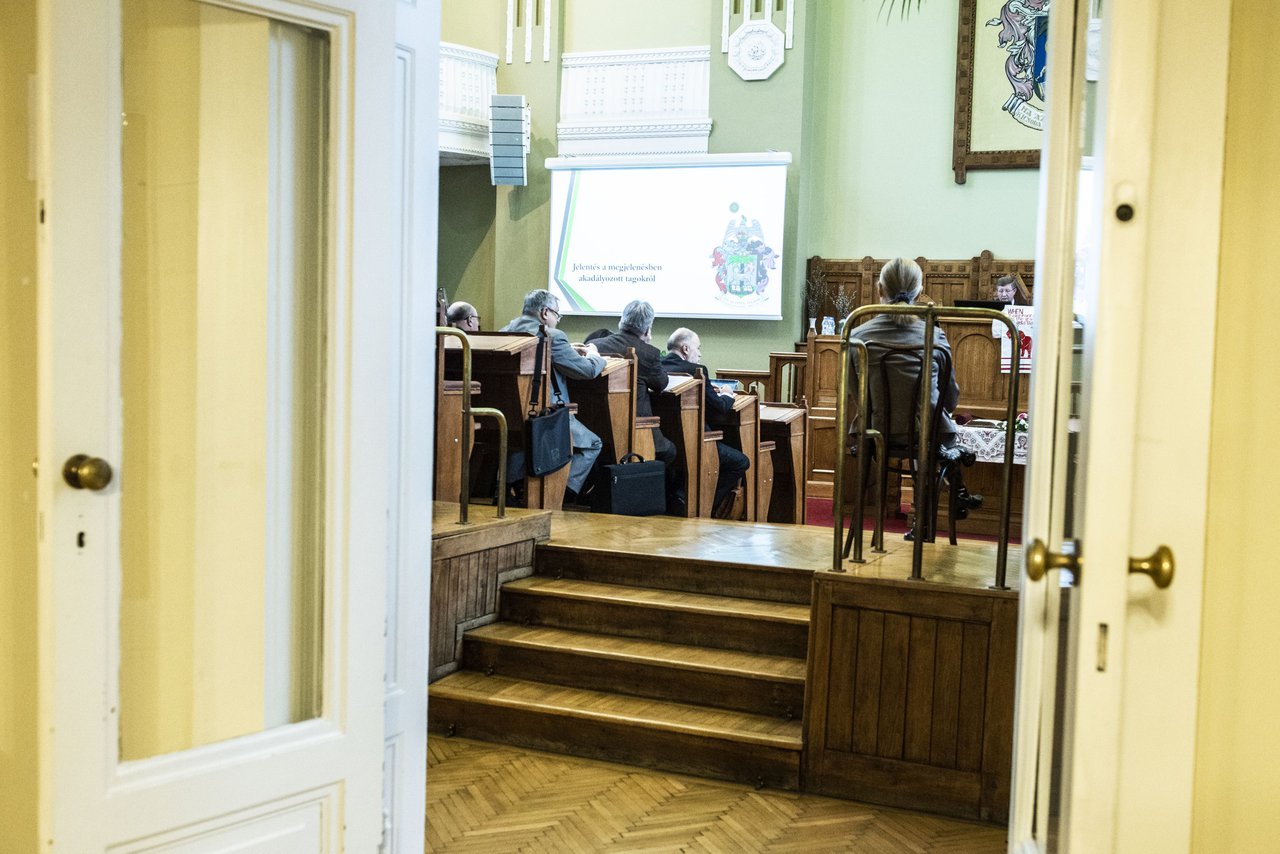Every six years, there are general elections in RCH on all levels of church life, including our 27 presbyteries, 4 church districts, and the national Synod. Why do we elect new officers every six years? What are the responsibilities of our leaders? How does the renewal of offices work? Based on our confessions, church law (Act on Election), the election guideline issued by the Legal Department of the Synod Office, and the announcements of the election committees, the Communication Service of RCH collected answers to these questions in order to navigate through the election process.

“God has always used ministers for the gathering or establishing of a Church for himself, and for the governing and preservation of the same; and still he does, and always will, use them so long as the Church remains on earth,” reads in one of the official confessional writing of RCH, the Second Helvetic Confession (Chapter XVIII.). And God has made it the responsibility of the community to “recognize, call, and elect” for the various offices the duty bearers it has prepared, reminds the preamble of the Election Act of our Church Law. Let us see how this is implemented in our church!
The Structure of RCH
The Reformed Church in Hungary (RCH) is structured and governed according the ‘Synod-presbyterian’ principle. Presbyterian (or presbyteral) polity is a method of church governance ("ecclesiastical polity") typified by the rule of assemblies of presbyters, or elders. A body of elected elders governs each local church, usually called the session or consistory.
RCH is composed of about 1,300 congregations throughout the country. Congregations from 27 Presbyteries (also called Dioceses), which are organized in four Church Districts - as higher authorities – led by Bishops and Lay Presidents. The four Church Districts have historic names reflecting their geographical location within the country oriented on the two main rivers, the Danube and the Tisza (Tisa); Danubian (Budapest), Transdanubian (Pápa), Cistibiscan (Miskolc) and Transtibiscan (Debrecen) District. The highest legislative and supreme governing body of RCH is the Synod (Genera Synod), with 100 members elected for six years.
It is the duty of the higher organizational levels and governing bodies to support the ministry of the congregations; to promote the unity of the church; and to exercise supervision and ecclesiastical discipline in the interests of good order.
Who elects the office bearers?
Based on the principles adopted by the Synod in Debrecen in 1881, RCH is governed by collegial bodies at all levels of the Church, namely by governing bodies whose members are elected by secret ballot at regular intervals and guarantee equal representation of ordained and lay members. It is the (Kirk) sessions (or local church councils) governing the congregations who elect the senior officers of their Presbytery and Church District every six years, just like the members and deputy members of the Synod representing their Presbytery.

Photo: Richárd Kalocsai
Deans and Chief Elders heading the Presbyteries
According to the Church Law in force, the congregations elect the presidium of the Presbytery, composed of the dean and the chief elder, which means the ordained and lay leaders of the 27 presbyteries. There has been a change in the rules and procedure compared to the previous election that in 2014. Consequently, deputies of the dean and the chief elder (also called ministerial and lay clerks) are not elected directly by the congregations anymore but are chosen by the Assembly of the Presbytery (also called Assembly of the Diocese), based on the proposal of the Presidium.
The Dean and Chief Elder represent the Presbytery together. They regularly visit congregations of their region, lead the assemblies and conventions of the bodies of the Presbytery, supervise the work of the other elected officials, implement the decisions of higher ecclesiastical authorities, and are responsible for managing the assets and finances of the Presbytery.
Other duties of the Dean include arranging the election of pastors, ensuring their substitution if necessary, overseeing the administration of congregations, reporting to the assembly of the Presbytery, and providing pastoral care for pastors’ families.
Bishops and Lay Presidents of the Church Districts

The four Church Districts of RCH
RCH has four Church Districts whose Presidium is also composed of two members: the Bishop and the Lay President (also called Chief Elder of the District). The bishop and the lay president are elected by the Presbyteries composing the District, but their deputies the ministerial and lay clerks - are chosen by the Assembly of the Church District (also called the local synod).
The Bishop and the Lay President represent the District together. They supervise the congregations, presbyteries, and their church officials, and implement the decisions of the boards and decision-making bodies of the District and those of the General Synod. Among others, they convene and conduct the meetings of the Church District assembly, coordinate the work of building up the church in their District, visit congregations, oversee educational institutions, preserve church archives and heritage in their area, and manage finances and assets of their District.
In addition, the Bishop authorizes students of theology who pass their ordination (second pastorals qualification) exam successfully to perform the pastoral ministry. The Bishop appoints pastors serving in mission and Church institutions, assigns assistant and associate pastors, and reports to the District Assembly.
Members and Duties of the General Synod
In addition to its legislative function, the General Synod of the Reformed Church in Hungary is the highest authority regarding the official teaching of the Church; it deliberates about official holidays, determines the order and liturgy of worship, the official Bible translation, the curriculum of the training and final, ordination exam of pastors. Among others it maintains and oversees the National Reformed Church Public Fund (also called solidarity fund) and the Reformed Pastoral Pension Institute and establishes public and higher educational institutions and institutions of another kind. It takes measures in matters of governance and administration affecting the entire Reformed Church in Hungary. It decides on all issues that require resolution or decision on the highest level in the church.

Photo: István Derencsényi
The General Synod has 100 (standing) members elected for a six -year term (for the legislature period, also called the ‘Synod Cycle’) assuring equal representation for ordained and lay members. Twenty of the delegates are Ex Officio members, including the Bishops and Lay Presidents of the four Church Districts, their deputies – ordained and lay District clerks -, the Bishop of the Protestant Military Chaplaincy (or his Reformed deputy), the General Secretary (also called Synod or Stated Clerk), the legal adviser of the Synod and the president of the National Council of Reformed Church Archives. Seventy-six members are elected by the local church councils (Kirk Sessions), distributed among the Church Districts: 24 of them represent the Danubian (Budapest), 12 the Transdanubian (Pápa), 12 the Cistibiscan (Miskolc) and 26 the Transtibiscan (Debrecen) Church District. In addition, there is a representative from educational institutions, one for each church district. Health Care and Social Institutions of RCH are represented by one delegate each. In addition, an equal number of proxies are also elected to replace ordinary members should they resign or be hindered from attending a session.
General Elections Every Six Years
The mandate of the current Synod expires on the 31st of December every six years, as does the mandate of the leaders of Presbyteries and Church Districts. The current 14th term (Cycle) of the General Synod and the office bearers elected in 2014 on all level of the Church governance terminates on the last day of December this year.
“Furthermore, no man ought to usurp the honor of the ecclesiastical ministry; that is, to seize it for himself by bribery or any deceits, or by his own free choice. But let the ministers of the Church be called and chosen by lawful and ecclesiastical election; that is to say, let them be carefully chosen by the Church or by those delegated from the Church for that purpose in a proper order without any uproar, dissension and rivalry,” warns the Second Helvetic Confession (Chapter XVIII)
The General Elections in the RCH began accordingly. During the month-long process, office-bearers of the next six-year legislature period are being chosen. The purity of the election process is guaranteed by the election committees of the Presbyteries and Church Districts, which are composed of three to seven members, depending on the local regulations.
Nomination
The assemblies of Presbyteries have the right and duty to nominate candidates for all positions. Officials are then elected by Kirk sessions (local church councils). According to the provisions of the Election Act, assemblies submitting nominations must be held by 30th September at the latest. ‘The members of the nominating body must carry out their work in full awareness of their responsibility before God, in a sacred atmosphere, including careful listening to the Word of God, discerning His will and fervent prayer,’ reads in the law.
Each member of the assembly of a Presbytery is eligible to nominate someone for each position. Those candidates, whom at least two members nominate, shall be voted on by the assembly, each member of the nominating assembly having one vote. According to the Election Act of the Church Law, at most three nominees for a particular office can be considered official candidates, supposed they receive at least 10% of the secret ballot votes. Candidates must declare in oral or written announcement whether they accept the nomination and meet the legal conditions for eligibility and there is no reason for their exclusion.
The voting results of the nominations have to be sent to the Election Committee of the relevant Presbytery within eight days, which has to prove and verify whether the candidates meet the legal requirements. In the case of the candidates for the offices of the Bishop and the Lay President of a Church District, the process is more complex. The election committee of the given Church District has to add all the votes of the nominating assemblies of the Presbyteries belonging to the District to finalize the list of the eligible candidates running for these two offices.
Election
The election occurs in the Kirk sessions (local church councils) by secret ballot. The election committees prepare and send out the ballots to the congregations according to the number of votes assigned to the given congregation. Each independent (also called ‘mother church’), missionary (church plants not yet independent), and associate (also called ‘daughter church’) congregation has a minimum of one and a maximum of five votes, depending on the number of their installed pastors and the number of their registered eligible members.
Who is eligible for the offices?
- Ordained pastors of RCH who served as independent local minister for at least ten years in the Presbytery can be elected as Dean.
- Elders with a living faith and outstanding commitment for church service, who are prepared for leadership and enjoy high public esteem, are eligible to become Lay Presidents (Chief Elders) of the Presbytery, with the condition that they served at least five years as elders of a congregation of RCH.
- Ordained pastors of RCH who served as independent local minister for at least altogether ten years can be elected as Bishop. Candidates for the Bishop’s office need to be local parish ministers in the given Church District, or have to embrace a position in a congregation within one year after the official outcome of the election has been announced.
- Elders with a living faith and outstanding commitment for church service, who are prepared for leadership and enjoy high public esteem, are eligible to become Lay Presidents of the Church District, with the condition that they served at least six years as elders of a congregation of RCH.
“Not any one may be elected, but capable men distinguished by sufficient consecrated learning, pious eloquence, simple wisdom, lastly, by moderation and an honorable reputation, according to that apostolic rule which is compiled by the apostle in I Tim., ch. 3, and Titus, ch. 1.” (Second Helvetic Confession, Chapter XVIII)
The office-bearers can be re-elected twice. As a term lasts six years, officers can serve in their respective positions for 18 years at the most. For calculating of the specified length of service, the year of service already started at the time of the nomination shall be considered a full year. Half of the Synod members delegated by the Kirk sessions shall be elected from among the ordained pastors of the Presbytery and half of them shall be from among the lay members eligible for the office of the elder.
The election of officers requires an absolute majority. To be duly elected, candidates therefore need a number of valid votes totalling over 50 per cent. An election is only valid if two-thirds of the members entitled to vote are present at the electoral meeting. Votes shall be sent to the competent election committee in a double, sealed secret ballot envelope before the deadline. Church Districts have different deadlines for the race.

Photo: Richárd Kalocsai
Handover of Office
In case of reasonable suspicion of any irregularity or unlawful conduct arising during the nomination or election, a complaint can be filed at the relevant election committee, which will investigate the appeal within eight days. The resolution of the committee can be challenged at the competent Church court, where an appeal can be filed within five days after its reception. The Church court gives priority to hearings regarding such complaints. The court decision is final and without appeal.
The term of office of the current officials expires on the 31st of December. The mandate of the new office-bearers begins on the 1st of January or the day of their inauguration. If this occurs place in the new year, the current leaders will remain in office as executives. The new Presbyteries and then Church District assemblies (also local synods) will be constituted at the beginning of the next year. They will elect the deputies of the ministerial and lay presidents of the 27 Presbyteries and 4 Church District. Finally, the new Synod will be constituted toward the end of February.

Photo: László Sebestyén
Ministerial President (Presiding Bishop) and Lay President of the Synod
At its constituting meeting, members of the new Synod will elect their officers, as a final step of the monthslong election process. The Presidents of the General Synod are elected by secret ballot from among the Bishops and Lay Presidents of the four Church Districts by the members of the Synod in February 2021, as expected. The ordained and lay presidents of the Synod represent the Reformed Church in Hungary together, both within and without Hungary, between the period of 2021 and 2026.